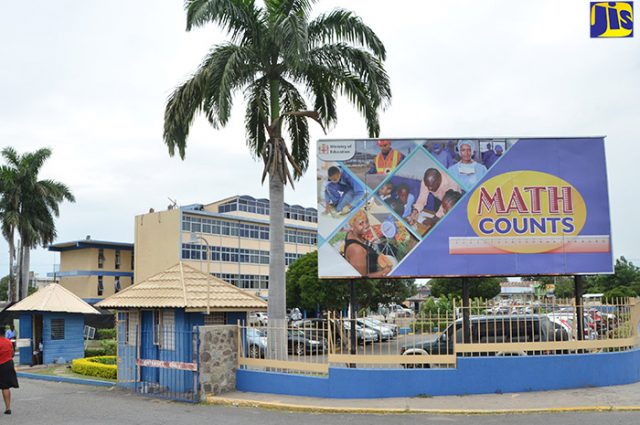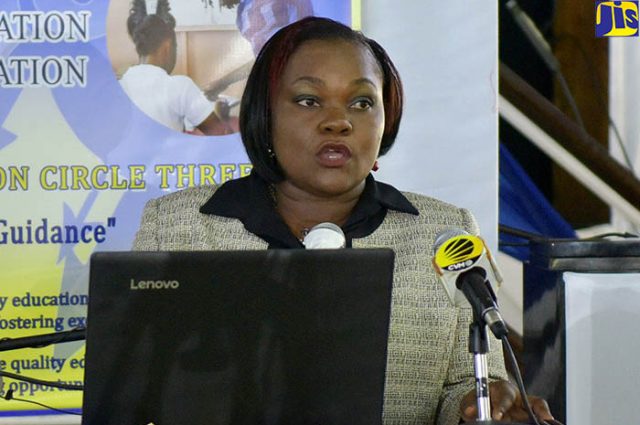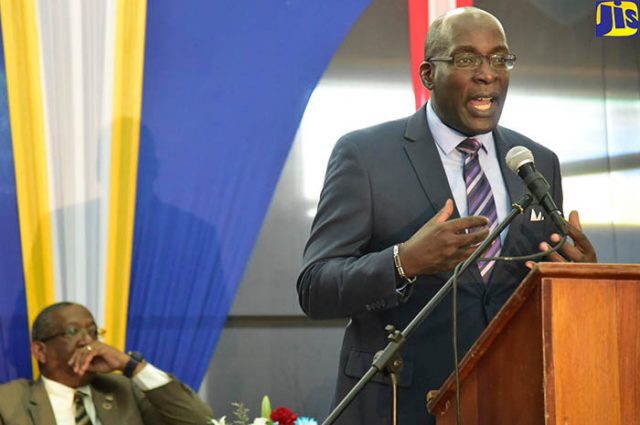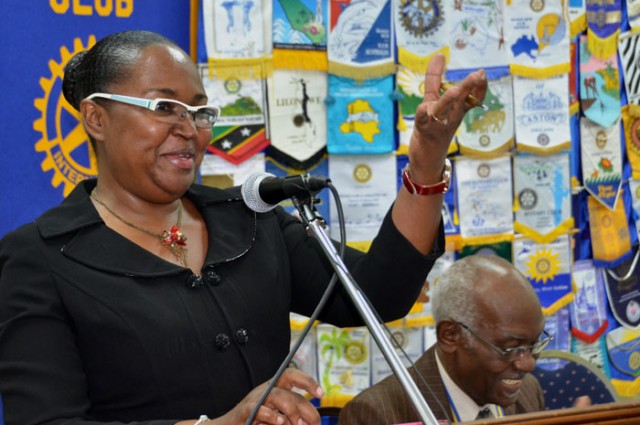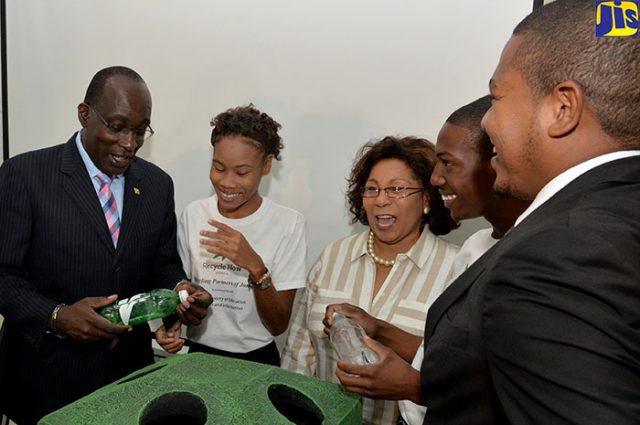JIS: A total of 835 children from 43 basic schools across the island were treated to a day of fun and learning at a reading fair staged by the Early Childhood Commission (ECC).
The event, held recently at Orange Park, located at 12 Ocean Boulevard, downtown Kingston, saw Minister of Education, Youth and Information, Senator the Hon. Ruel Reid; and State Minister, Hon. Floyd Green, along with scores of persons from the private sector and the entertainment industry, reading to and interacting with the children.
It was part of the ECC’s ‘Read Pon Di Cawna’ and ‘Read Across the Region’ initiatives launched last year to engage teachers, institutions, parents, public officials, agencies and other stakeholders in the effort to promote and instil a love for reading at an early age.
Read Pon Di Cawna is being hosted in designated communities, while Read Across the Region targets early-childhood institutions within the educational regions.
Senator Reid hailed the staging of the reading fair. “This is the kind of initiative that we really want,” he told JIS News.
“It empowers them (children) and unleashes the ability to do very well academically,” he added, noting that reading enhances success in all aspects of life, as “everything hinges on the capacity to read”.
Mr. Green, for his part, said that not only was the day educational but also entertaining, proving that children can have fun while learning.
“It is very important for us to push reading, especially in the early years, and we are trying to engender a culture of reading by having parents and caregivers read to their children; that was what the day was about,” he says.
The Education State Minister, in stressing the need for books in the lives of children, says that it is never too early to help children develop an appreciation for reading.
As such, he is urging parents to cut the time that children spend watching television.
ECC Chairman, Trisha Williams-Singh, said the objectives of the event were met, in terms of promoting reading among children at the early-childhood level.
She noted that by reading, children develop “critical thinking”, which is important in later stages of learning.
“It is very critical that we continue to develop that thinking in our children. Reading must be constant, and if we instil in our children, from early, to read, it becomes a domino effect where the toddlers will stick to the culture of reading and others will also be attracted to it,” she pointed out.
“Too much money goes into remedial education. If we take the time and focus on the foundation, learners will enter the other levels of education with strong aptitudes,” she added.
Executive Director of the ECC, Karlene DeGrasse-Deslandes, in expressing gratitude to the many sponsors, noted that the fair has reinforced the idea that reading should be an everyday occurrence. “Read more, connect with your children, have them explore,” with books, she said.
Principal of the St. Andrew-based Kintrye Basic School, Desrine Mitchell, told JIS News that she was impressed with the staging of the event, and the prominent Jamaicans on hand to read to the children.
She commended the ECC Chairman as a very “interactive and involved” official, who not only “wants solutions; she comes up with ideas. She creates opportunities for things to happen. This is really impressive”.
Shericka Cowan, who heads the Naggo Head Infant School in St. Catherine, says she and her students received “blessings” at the fair, which she described as “interactive”.
She expressed the wish for all schools to be exposed to similar sessions, because it is “good for learning and literacy”.
Marketing Officer at Consolidated Bakeries, Tiana Sterling, who was among the cadre of sponsors in attendance, hailed the fair as a very good opportunity “to build a future of learners”.
She told JIS News that the “children were very attentive and seemed to have enjoyed the day’s activities”.
Managing Director of the Urban Development Corporation (UDC), Dr. Damian Graham, said his entity fully supported the event, which was about preparing children for the future.
“Having early-childhood intervention like this is part of our mandate of making development happen. I am proud to be a part of this experience. We need more interventions like this… we will have transformation for the citizens of the future,” he noted.
CAPTION: Minister of State in the Ministry of Education, Youth and Information, Hon. Floyd Green (right), reads to children attending the Early Childhood Commission’s (ECC) ‘Read Pon Di Cawna’ event held recently at Orange Park, downtown Kingston. Seated next to Mr. Green is Executive Director of the ECC, Karlene DeGrasse-Deslandes.


